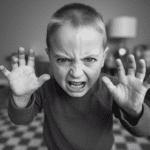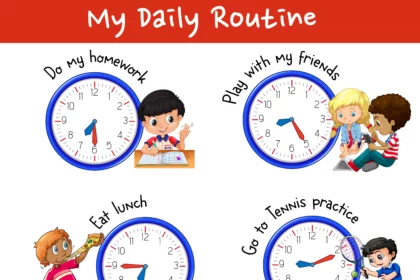Sometimes, being a parent is really, really hard. Have you ever been so stressed and your child wouldn’t stop misbehaving that you just ended up hitting them? And felt super guilty after? It is ok, everybody does it, you are not alone.
It happens to a lot of us. But what’s important is what we do after : we need to fix. And that’s what I’m here to talk about today. I want to help you create a happier, healthier home for your kids.
Why Hitting Hurts
Hitting might seem like a quick way to get your child to listen. I’ve learned as a Pediatrician that it actually does more harm than good. It doesn’t teach them to behave better. Instead, it just makes them scared, sad, and even more angry in the long run. All types of punishments can hurt your kid.
Any physical punishment can actually harm your child. Hitting your child teaches them that hitting others is how things are resolved. It provides the basis for thinking that violence is an alternative. It:
- Can make kids more aggressive : And this is how they might start bullying people because of this.
- Causes a variety of mental health problems: Yes, hitting makes your child anxious and depressed. They should to also feel bad about themselves.
- Hurts their brain development: Hitting hurts their brain development because it makes it difficult for it to function normally.
- Makes it harder to do well in school: Kids with hits in their history may do more poorly in school than those who don’t.
- Damages your relationship with your child: Your child won’t trust you if they’re scared of being hit.
Hitting them isn’t the answer, let’s deal with this first.
Also, if someone suspects a child is being abused, they must report it to Child Protective Services. Then they might come check on your child to see that they are not safe.
Confronting What Stresses You
If we are super stressed, it is easier to become angry and, on impulse, do things we later regret. It is imperative to find ways to manage stress.
This works for me as a Mom and as a pediatrician:
- Speak with fellow mothers: Find a group in which you can share your feelings and receive advice.
- Set aside time for yourself: Just a few minutes for you to unwind can go a long way.
- Seek professional help: If you’re feeling truly low or anxious, seeing a therapist can be beneficial.
- Have a routine: Knowing what each day will bring can help make all of you feel calmer.
- Reach out to others: A friend or family member you trust can be a useful person to talk to when feeling low.
- Practice self-care. This can be exercising, or partaking a hobby that you enjoy.
- Address problems. Work on issues causing stress, such as money issues.
- Military OneSource: A helpful program for military families.
Where to Find Help
If you are hitting your child and want to stop, there are people who can help.
- Child Protective Services: They can provide you with advice and help link you to resources in your area.
- Parenting Helplines: Numbers you can call to talk to someone who gets it:
- National Child Abuse Hotline (1-800-4-A-CHILD)
- California Parent & Youth Helpline (855-4APARENT)
- Doctors and Therapists: Your family doctor, or your child’s pediatrician, can assist you in finding a therapist.
- Websites: The American Academy of Child & Adolescent Psychiatry (AACAP) and the National Child Traumatic Stress Network provide good material.
Positive Discipline: Learning to Do Better
Positive discipline is teaching kids how to behave — minus the hitting or yelling. It’s a matter of kindness and respect, even as you’re addressing what they say.
A four-year-old is going to need to be guided more to understand it. An eight-year-old should start learning better models.
You can try these things:
Setting Clear Expectations
- Teach them what you want them to do: Show your child the correct way to do things, tell them what you want them to do and why it’s the right thing.
- Childproof your home: Store away potential hazards, and provide age-appropriate toys and activities.
- Explain rules:Stipulate to your kids. Explain why the rules are necessary.
- Be consistent: Make rules, and be consistent in living by them.
Building Communication
- Express how you feel: Instead of saying “You’re a bad boy,” say “I feel sad when you do that.”
- Teach them how to act: Model kindness and respect for them.
- Hold conversations with your children: Guide your kids to find solutions when they misbehave.
Applying consequences
- Teach them to clean up the mess: If they create a mess, help them to clean it up. If they offend someone, help them apologize.
- Offer them options: Allowing them to choose between one thing or the other teaches them that choices have consequences.
- Reward the positive: Praise them when they do things right!
- Utilize redirection, rewards, and time-outs:
- Redirection is introducing them to a different activity.
- Rewards can be small, like a sticker or extra playtime.
- Time-outs must be brief and remain peaceful.
- Remove privileges, assign chores Explain to children how their poor behavior can lead to a loss of privileges.
For instance, if your child is struggling to share a toy with a friend, you can redirect him to another activity, offer positive reinforcements and praise when he does share, or suggest a short time-out if he becomes aggressive.
Managing Your Anger
Being angry is not bad, but we must address it properly. If you are struggling reach out for assistance.
If we get too angry, then we might do something that we will regret. Here's how to stay calm:
- Understand your triggers: Is it when your child ignores you? When you're tired?
- Use healthy coping mechanisms: Exercise, deep breathing, or returning to something you enjoy can help.
- Take a plan: Work out with your child what to do when you’re both mad.” Perhaps you will retreat to different rooms to cool off.
- Set an example: Teach your child to stay calm even when you don’t feel calm yourself.
- Try to relax: Use deep breathing or visualize a calm scene.
- Speak calmly: Try saying “I feel angry when you don’t listen” rather than shouting.
- Take a time-out: If you sense you are losing control, step into another room for a few minutes.
- Contemplate on what you truly need. Do you need a break? Some sleep?
- Listen your body. Do you experience an uptick in your heart rate when you feel angry?
- Speak in a soothing voice. Say to yourself “I will keep calm”
- Consider why you’re angry: Are you angry with your child, or something else?
- Use “I” Messages. Say “I feel angry when…”
- Have a plan. Create a signal with your children.
If you’re still stuck, find someone to help. It is ok.
Fixing your relationship
If you have physically assaulted your child, you need to do damage control. Tell them you made a mistake and you will do better.
- Calm yourself first: Avoid attempting any dialogue with your child when you’re still angry.
- Check on your child: Make sure he or she is not hurt, and ask if he or she needs a hug.
- Apologize: Admit you were wrong and promise to try not to do it again.
- Let them talk: Let them express how they feel, even if it means they’re angry with you.
- Request forgiveness: Let them know you’re sorry, and thank yourself for forgiveness, too.
- Spend quality with one another: Get together for fun.
- Be accountable for your actions: Blame your child.
- Let your child be upset. Do not tell them to simpifly “Get over it”.
When trying to reconnect:
- Let them know you love them.
- Don't pressure them. Allow them to come near you when they are ready.
- Bear in mind that you care. Concentrate on how you feel about your child.
- Reflect on what occurred: What can be handled differently?
Keep in mind that very young children may require additional snuggling and reassurance. Older children may want to discuss what happened in greater detail.
If you have a preschooler, then you can promise more cuddles, for example. If your child is school-age, try to discuss what happened with them.
How To Make Sure it Doesn’t Happen Again
It takes time and effort to change. It’s like a new skill to learn. So, How can you not hit your child again:
- Plan ahead: Have a plan in mind for when your child misbehaves.
- Get support: Talk to other parents, a therapist or a support group.
- Educate yourself about child development: Understanding what your kid is capable of at various ages can be helpful.
- Learn more: Educate yourself and others about the effects of physical punishment.
- Make a difference: Change laws to stop violence against children.
- Learn non-violent discipline: Learn to redirect their attention or give time-outs.
- Teach them good action: If you want your kids to respect you, you must respect them.
- Set rules: Make sure that your kids have clear rules that make sense to them.
- Apply consequences: When they break a rule, remind them of a consequence that makes sense.
- Give them attention: Acknowledge them when they’re doing well — not just for misbehavior.
- Praise them: Tell them you’re proud when they perform well.
- Change the situation:If your child is acting out, have him do something else.
- Use time-outs: use it as a short break to calm down.
- Be proactive: Prepare for challenging moments, such as when you are out buying things.
- Take time for you: Ensure you are taking care of yourself, so you can show up as a better parent.
Its about keeping the kids from getting spanked. All children need to be kept safe also.
Conclusion
“Beating your child is never okay, but it doesn’t mean you’re a bad parent. It tells you you’re sick and you need help and that’s okay. You matter. I do too!
You can also implement it with a positive family environment at your home by ways of following innovative approach. Come with it to add faith for a better future by learning new techniques of anger management and how to discipline. This is not going to be easy, but it is going to be well worth it.
Take the first step today. You can do this! I believe in you. How are you handling those situations? Feel free to leave a comment!











